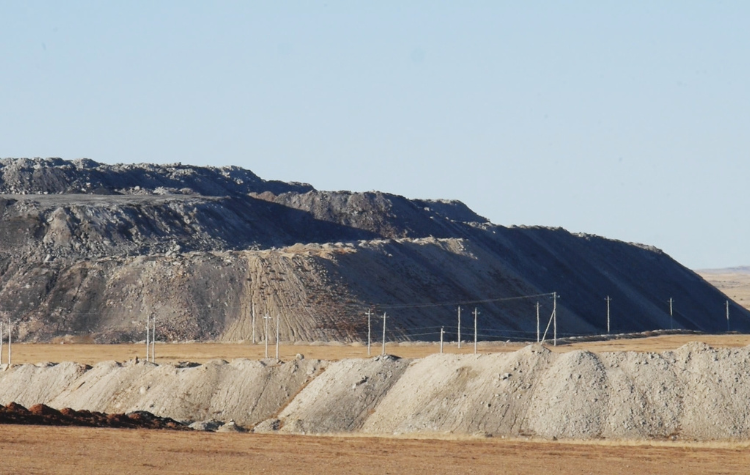(Bangkok, 28 June 2023) – Prioritise people over profits.
In light of French President Emmanuel Macron’s recent visit to Mongolia—in support of uranium mining—the Asian Forum for Human Rights and Development (FORUM-ASIA) reminds the Mongolian Government of its international human rights obligation to protect people from potential human rights violations committed by business enterprises.
Likewise, we urge mining companies to respect human rights and effectively address the negative impacts their operations may cause on the environment; local livelihoods; and people’s safety, health, and overall well-being.
Uranium mining
On 21 May 2023, Macron made a brief stop at Ulaanbaatar, following the G7 Summit in Japan, at the invitation of Mongolian President Khürelsükh Ukhnaa.
Among the historic state visit’s agenda was a discussion on the development of two uranium deposits in Mongolia, which is expected to boost energy sources, provide local employment, and supply uranium for France.
France does not have its own uranium deposits, hence it is reliant on imports to satisfy its nuclear fuel demands of 8,000 to 9,000 tonnes of uranium per year. The planned mines in Mongolia—Dulaan Uul and Zoovch Ovoo—are estimated to provide 64,000 tonnes of uranium.
However, over the years, communities have expressed their disapproval of such mining projects, pointing out long-standing issues of possible corruption, water contamination, the loss of livelihoods among herders, pollution, destruction of pasturelands, displacements, and health problems affecting both humans and livestock.
Various civil society organisations, journalists, and human rights defenders have been documenting the harmful impact of mining operations for years. Unfortunately, several of their grievances and complaints are either ignored or downright denied by some mining companies.
Supporting communities
As recommended by the United Nations Guiding Principles for Business and Human Rights, when abuses occur, victims should have access to effective remedy through different grievance mechanisms. Mining companies must therefore openly listen to and act in support of impacted communities, without dismissing their experiences and testimonies.
In October 2022, FORUM-ASIA conducted a research mission in the districts of Dalanjargalan, Ulaanbadrakh, and Khatanbulag in Dornogovi province to gather the stories of herders, families, and communities impacted by mining.
‘Because of uranium, drinking water is spoiled and poisoned. Livestock died, and human health and the environment were threatened. People are healthy when animals are healthy. Government and [mining] companies do not listen to us. They ignore us. Only the National Human Rights Commission responded positively. I heard that heavy elements were detected in eight wells and that a filter will be installed,’ shared D. Norsuren, a human rights defender and herder from the Dornogovi province.
Based on testimonies of impacted community members, our report offered recommendations on how local and national governments, mining companies, and communities can work together to ensure the protection of human rights and the environment. First and foremost, communities must be regularly consulted and involved in decision-making processes that impact their health and livelihoods.
FORUM-ASIA urges the Mongolian Government to comply with the country’s Mineral Laws, particularly on enforcing the duties of mining companies regarding environmental protection.
We also call on the government to establish a more well-rounded criteria for approving mining licenses, emphasising the need to uphold the community’s right to a healthy, safe, and clean environment. Human rights defenders advocating for these rights must be allowed to continue their work without fear of repercussions or intimidation in line with the 2021 Law of Mongolia on the Legal Status of Human Rights Defenders (HRD Protection Law). In addition, we ask the Mongolian Government to provide sustainable funding for the National Human Rights Commission, enabling it to efficiently investigate claims of human rights violations committed by mining companies.
‘We remind France of its recommendations during Mongolia’s third Universal Periodic Review in 2020 to put an end to human rights violations linked to environmental damage, and protect human rights defenders against attacks, threats and intimidation. While importing critical minerals from Mongolia, France must not forgo its human rights obligations towards the people of Mongolia,’ said Mary Aileen Diez-Bacalso, Executive Director of FORUM-ASIA.
We also ask mining companies to fully comply with the UN Guiding Principles on Business and Human Rights and all relevant national laws and regulations on mining, human rights, and environmental protection.
Lastly, we commend the Government of Mongolia for recently adopting a National Action Plan on Business and Human Rights, and remind the Government to uphold its promises at the ground level.
While mining may contribute to economic growth, it should not come at the cost of people’s health and wellbeing. FORUM-ASIA is in solidarity with the people of Mongolia who continue to fight for the welfare and sustainable future of their livelihoods and communities.
About FORUM-ASIA:
The Asian Forum for Human Rights and Development (FORUM-ASIA) is a network of 85 member organisations across 23 countries, mainly in Asia. Founded in 1991, FORUM-ASIA works to strengthen movements for human rights and sustainable development through research, advocacy, capacity development and solidarity actions in Asia and beyond. It has consultative status with the United Nations Economic and Social Council, and consultative relationship with the ASEAN Intergovernmental Commission on Human Rights. The FORUM-ASIA Secretariat is based in Bangkok, with offices in Jakarta, Geneva and Kathmandu. www.forum-asia.org
For further information, please contact:
- Development and Knowledge Management Programme, FORUM-ASIA, [email protected]
For media inquiries, please contact:
- Communication and Media Programme, FORUM-ASIA, [email protected]



